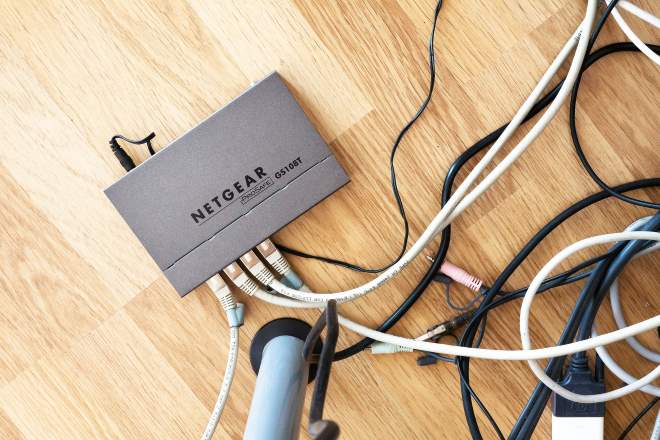Second Hand Alloy Wheels: Advantages, Pricing, and Buying Guide
Alloy wheels are a popular upgrade for many vehicle owners, offering improved aesthetics and performance. However, new alloy wheels can be expensive, leading many to consider second-hand options. This article explores the world of second-hand alloy wheels, discussing their advantages, pricing, where to find them, and important considerations for buyers.

When it comes to upgrading or replacing your vehicle’s wheels, second hand alloy wheels present an attractive alternative to buying new. Many motorists across the UK are discovering that pre-owned alloys offer excellent value while delivering the aesthetic and performance benefits associated with quality wheel rims. Understanding the market, knowing what to look for, and recognising fair pricing can help you make a smart investment that enhances your vehicle without unnecessary expense.
What are the advantages of second hand alloy wheels?
Second hand alloy wheels offer several compelling benefits for budget-conscious motorists. The most obvious advantage is cost savings, with pre-owned wheels typically priced at 40-70% less than their brand-new counterparts. Beyond affordability, purchasing second hand alloys is an environmentally responsible choice, reducing waste and supporting the circular economy. Many used alloy wheels come from vehicles that have been scrapped or upgraded, meaning the wheels themselves may have minimal wear and plenty of life remaining. Additionally, buying second hand opens access to discontinued designs or premium brands that might otherwise be unaffordable. For classic car enthusiasts or those seeking specific styles no longer in production, the second hand market often provides the only viable option. Quality alloy wheels are built to last, and with proper inspection, you can secure wheels that perform just as well as new ones for a fraction of the price.
How do second hand alloy wheel prices compare to new ones?
The price difference between new and second hand alloy wheels can be substantial, making pre-owned options particularly appealing. New alloy wheels typically range from £80 to £300 per wheel depending on size, brand, and design, with premium or specialist wheels exceeding £500 each. In contrast, second hand alloy wheels generally cost between £30 and £150 per wheel, representing significant savings. A complete set of four new mid-range alloys might cost £600-£1,200, whereas a comparable second hand set could be acquired for £200-£500. The condition, brand reputation, size, and rarity of the design all influence pricing in the used market. Wheels from prestige manufacturers like BBS, OZ Racing, or original equipment manufacturer (OEM) wheels from luxury brands tend to retain more value but still offer savings compared to new. Refurbished second hand wheels, which have been professionally restored, sit at the higher end of the used price spectrum but below new retail prices. It’s worth noting that seasonal demand, particularly before MOT season or summer months, can affect availability and pricing.
| Wheel Type | Condition | Price Range (Per Wheel) | Price Range (Set of 4) |
|---|---|---|---|
| Budget Alloys | Second Hand | £30-£60 | £120-£240 |
| Mid-Range Alloys | Second Hand | £60-£100 | £240-£400 |
| Premium/OEM Alloys | Second Hand | £100-£200 | £400-£800 |
| Budget Alloys | New | £80-£120 | £320-£480 |
| Mid-Range Alloys | New | £120-£200 | £480-£800 |
| Premium Alloys | New | £200-£500+ | £800-£2,000+ |
Prices, rates, or cost estimates mentioned in this article are based on the latest available information but may change over time. Independent research is advised before making financial decisions.
Where to buy second hand alloy wheels?
The UK market offers numerous channels for purchasing second hand alloy wheels, each with distinct advantages. Online marketplaces like eBay, Facebook Marketplace, and Gumtree provide extensive selections with competitive pricing, though buyers should exercise caution and thoroughly inspect items before purchase. Specialist alloy wheel retailers and refurbishment companies often stock quality used wheels that have been inspected and sometimes refurbished, offering greater peace of mind albeit at slightly higher prices. Local scrap yards and vehicle dismantlers can be excellent sources for affordable wheels, particularly OEM options from specific vehicle makes. Auto jumbles, car boot sales, and automotive forums dedicated to specific vehicle brands also present opportunities to find second hand alloys. When buying online, look for sellers with positive feedback, detailed photographs showing all angles including the inner rim, and clear descriptions of any damage or imperfections. Local collection is preferable as it allows personal inspection before committing to purchase, ensuring the wheels meet your expectations and are free from structural damage.
How to find the right price for second hand alloy wheels?
Determining fair market value for second hand alloy wheels requires research and comparison. Start by identifying the exact specifications you need, including diameter, width, offset, and bolt pattern to ensure compatibility with your vehicle. Search multiple platforms simultaneously to gauge the typical price range for your desired wheels. Consider the wheel’s original retail price as a baseline, with second hand prices typically representing 30-60% of the new cost depending on condition and age. Factor in the condition carefully, as wheels with kerb damage, corrosion, or structural issues should be significantly discounted. Refurbished wheels command higher prices but offer restored appearance and verified structural integrity. Seasonal timing matters, with prices often lower during winter months when demand decreases. Be wary of prices that seem too good to be true, as they may indicate hidden damage, stolen goods, or misrepresented specifications. Request detailed measurements and photographs, and don’t hesitate to negotiate, particularly when buying complete sets or if minor cosmetic imperfections are present.
What should you consider when buying second hand alloy wheels?
Successful second hand alloy wheel purchases depend on thorough evaluation and due diligence. First, verify fitment compatibility by checking your vehicle’s specifications against the wheel’s diameter, width, offset, and bolt pattern. Incorrect specifications can lead to rubbing, handling issues, or even safety concerns. Inspect the wheels carefully for structural damage such as cracks, bends, or welds, which compromise safety and should result in rejection regardless of price. Surface damage like kerb rash, scratches, or minor corrosion is largely cosmetic and can often be repaired affordably. Check for buckles by spinning the wheel and observing whether it wobbles, indicating damage that affects balance and ride quality. Verify the wheels are genuine rather than counterfeit copies, which may lack proper safety certification and structural integrity. Ask about the wheel’s history, including the vehicle it came from and reason for sale. Ensure any centre caps, bolts, or accessories are included or factor replacement costs into your budget. Consider whether tyres are included and their condition, as good tyres add value while worn or damaged ones represent additional expense. Finally, obtain proof of ownership or receipts to protect against purchasing stolen goods.
Ensuring quality and safety with second hand alloy wheels
While second hand alloy wheels offer excellent value, prioritising safety and quality ensures your investment proves worthwhile. If purchasing wheels with cosmetic damage, budget for professional refurbishment, which typically costs £40-£80 per wheel and restores appearance while allowing inspection for hidden issues. Have wheels professionally balanced and fitted by a qualified technician who can identify any problems during installation. Consider purchasing from reputable refurbishment specialists who offer warranties or guarantees on their stock, providing recourse if issues arise. Check that wheels meet British Standards and display appropriate markings indicating certification. Avoid wheels that have been poorly repaired, show signs of welding, or have been painted over damage to conceal issues. When in doubt, consult a professional wheel specialist or mechanic who can assess condition and advise on suitability. Remember that wheels are critical safety components, and compromising on quality to save money can prove false economy if structural failure occurs.
Second hand alloy wheels represent a practical solution for motorists seeking quality, style, and value. By understanding pricing structures, knowing where to look, and carefully evaluating condition, you can secure excellent wheels that enhance your vehicle’s appearance and performance while keeping costs manageable. With proper research and attention to detail, the second hand market offers outstanding opportunities for savvy buyers.




